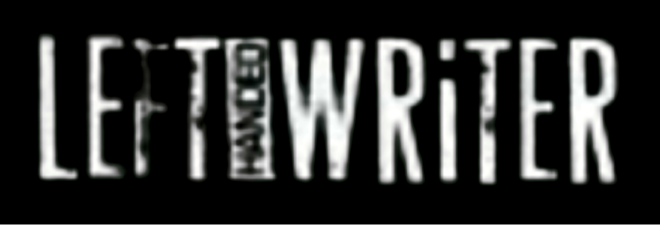There's No Such Thing As Writer’s Block
A few weeks into my first job as an ad agency copywriter, it finally happened. Up to that point, everything had been going swimmingly. They'd bring me assignments and I'd knock them out of the park. The words came easily, and everyone seemed genuinely pleased with my work.
Then suddenly, out of nowhere, a serious case of writer’s block hit. The ideas all seemed to have closed up shop and gone home.
It was at this point that my boss appeared in the doorway to my office, “how’s it coming?”
“Ugh. I have the worst case of writer’s block. This one's kicking my butt.” My Creative Director had started out as a copywriter, himself. If anyone could commiserate with me, he could. Or so I thought.
Instead, he cocked his head to the side and said, “say, if you called a plumber and after checking things out he said, ‘sorry, I can't fix your leak; I've got plumber’s block'… or your doctor said ‘I can't operate today; I'm suffering from surgeon’s block,’ how would you respond?”
I was too dumbfounded to speak. He continued, “We hired you because you're a good writer. This is the job. I expect to have something on my desk by the end of the day.”
With that he turned and walked out.
I was floored. And a bit embarrassed, to be honest, because he was right. I got to work. And I did have something on his desk before I left. It wasn't amazing… but it was a start. And we turned it into something that ended up being really good.
More importantly I did a deep dive into the creative process after that… because that was a conversation I did not want to repeat.
Here’s what I learned, in a nutshell: creative is an attribute; creativity is a skill set.
Creativity is not some mystical ability. Inspiration is not some divine gift bestowed upon the worthy from on high. It is a clear, straightforward, repeatable process. And the romanticized notion of being struck by creative “inspiration" is a lazy, haphazard and, to be frank, unprofessional way to work.
What is creativity? At its most fundamental, creativity is simply smashing two unrelated ideas together and seeing what happens. Whether you're solving a problem, writing a poem or creating a new app, the creative solution is always the product of two (or more) disparate ideas colliding with one another.
The process of intentional creativity has 6 steps:
1. Define the outcome
2. List existing resources
3. Introduce random input
4. Collect outputs
5. Mix and match until a solution presents itself
6. Evaluate solutions to ensure they meet the criteria needed.
Listed like this, it seems clinical—cold, even-- but it's not. Here it is put another way:
1. Why are we doing this?
2. List what we already know.
3. List some unrelated things.
4. Combine them randomly in playful ways.
5. Capture the results, and combine them randomly in playful ways.
6. Evaluate results and choose the best solution.
Is it as romantic and mystical-feeling as “divine inspiration?” No, but it's more reliable. And here's the kicker: they are the same process. The only difference is that, during “inspiration,” your subconscious is doing the heavy lifting for you, then holding the solution up as if drawn whole from the ether.
It's a lie, of course. Behind the scenes your brain had been smashing ideas together looking for a solution. But, unguided and undisciplined, it had been doing so for multiple problems, and getting distracted by every shiny object that crossed your senses and your memories.
Working this process, the results won't feel magical in the same way that fully- formed left-field idea bursting forth does. You've taken a peek behind the curtain; you know what went into the creation of this new thing.
But to those on the outside, those who didn't see the carnage of all of those smashed ideas, it will still seem just as, well, creative. To them, you will seem more inspired, more productive, because now you can do it on command.
And if you can be creative consistently on command, that means writer’s block doesn't actually exist. When you find yourself in that state, it's actually your brain sending you a message that one of three things is wrong:
1. You don't have enough information: identify the holes in your knowledge about this and do more research.
2. You haven't clearly defined the purpose or the outcome. Your brain is a computer designed to give you answers. Clear answers require clear questions. Get clarity.
3. You don't like it: this is straight up procrastination. You don't want to do it and writer’s block is your excuse for putting it off. Suck it up. You've got a job to do. Work the process.
So, the good news is, writer’s block does not exist. That means you should be efficient, effective and productive most of the time.
The bad news is, writer’s block does not exist. No more excuses. Get to work. Stop waiting for things to happen, and make them happen, instead. Every time.
This is, admittedly, a brief overview of a much deeper subject. If you're invested in doing a deep dive of your own, I recommend the works of Edward DeBono, Michael Michalko and Doug Hall as a starting point.
